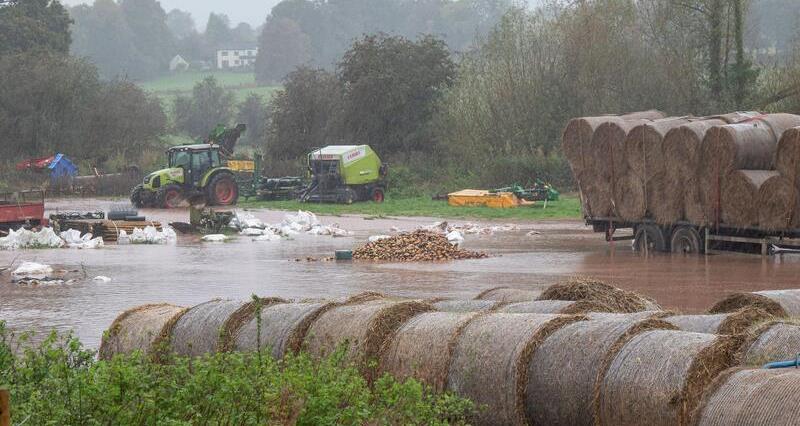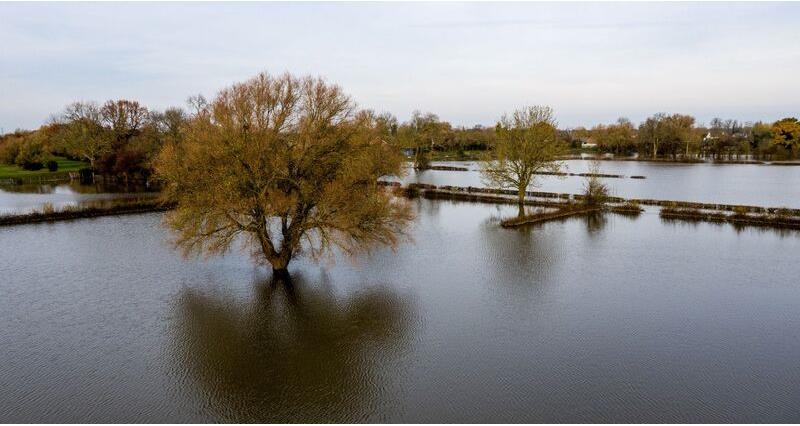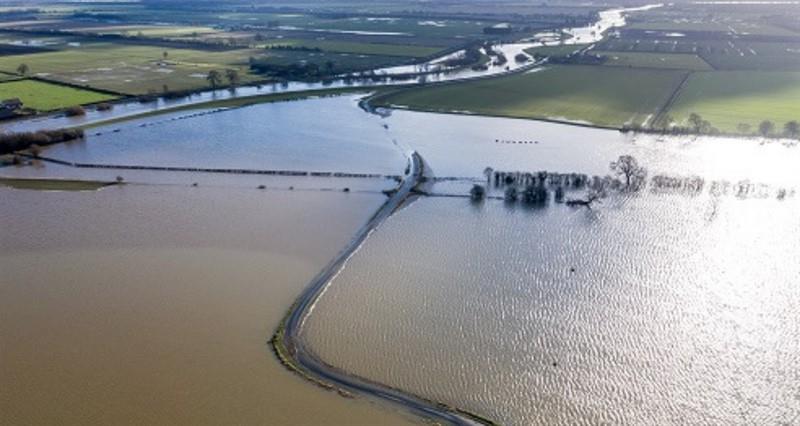ŌĆ£Agriculture is often overlooked when it comes to flood risk protection,ŌĆØ says Richard. ŌĆ£It is the bedrock of the UKŌĆÖs largest manufacturing sector, the food and drink sector, contributing some ┬Ż120 billion to our economy. But it also forms a vital part of our national wellbeing, managing a diverse landscape, providing access and environmental benefit, and boosting local and rural economies through recreation and tourism.
ŌĆ£Much of our highest value agricultural land lies in areas that are vulnerable to flood risk and it does require greater recognition,ŌĆØ he adds.
The family behind the farm
Richard explained how around a third of his farm floods, and has flooded a total of 15 times in the past 23 years, with six of the incidents occurring in the last four years.┬Ā
ŌĆ£This saves the local town of Selby from flooding, but leads to significant losses and stress on farm,ŌĆØ Richard explains. ŌĆ£In December 2023 alone, I lost 52 acres of wheat crop, or the equivalent of 300,000 loaves of bread.┬Ā
ŌĆ£Agriculture does have a role to play, which may include adoption of natural flood management measures and flood storage in some areas, but we need to see greater recognition for the public goods that we deliver, as currently there is none.
ŌĆ£We also need to look across the whole catchment from the hills to the sea, utilising all the tools that may be needed to mitigate the flood risk.
ŌĆ£Catchment management just isnŌĆÖt being altered to reflect the rapidly changing climatic circumstances and adaptation should be a priority as set out in NAP3,ŌĆØ says Richard.
ŌĆ£In December 2023 alone, I lost 52 acres of wheat crop, or the equivalent of 300,000 loaves of bread.ŌĆØ
NFU Environment Forum chair Richard Bramley
ŌĆ£We also need to reflect on the Land Use Framework which will likely require productive arable land to increase output.
ŌĆ£Our catchment management needs to adapt to suit the new normal in rainfall patterns ŌĆō and itŌĆÖs not just too much water, but also too little.ŌĆØ
Long-term asks from government
╗╩╝ę╗¬╚╦would like for there to be a review of the Flood Defence Grant in Aid cost-benefit analysis so that it sufficiently values agricultural land.
Farmers who are intentionally flooded in order to protect people and property are performing a public good and should therefore be reimbursed for the public good being provided.
We would would like to see the EA (Environment Agency) prioritise essential maintenance of flood defence assets and watercourses which have been neglected for decades.
In addition, we would encourage the EA to improve communications on flood risk: systems for communicating with those affected must be accurate and reach the most remote communities, providing sufficient time for response.
Regarding the governmentŌĆÖs targets for increased housing, with 50% of the proposed new homes planned on being built on floodplains, local authorities are looking to SuDS (Sustainable Drainage Systems) to protect homes from flooding.
The government has accepted the recommendation that Schedule 3 of the Flood and Water Management Act 2010 should be fully implemented.
This will ensure that SuDS are maintained for the lifespan of the development and that farmers are not responsible for said maintenance or liable for the SuDS. We now need to see action to take this recommendation forwards.
Finally, the NFU would encourage the government to amend the Land Drainage Act 1991 to allow for the creation or expansion of IDBs (Internal Drainage Boards). These boards are dealing with more and more water from urban expanses; our farming members in Internal Drainage Districts pay their drainage charges however, the urban areas being protected are not, and without the amendment to the Land Drainage Act this is not possible.





